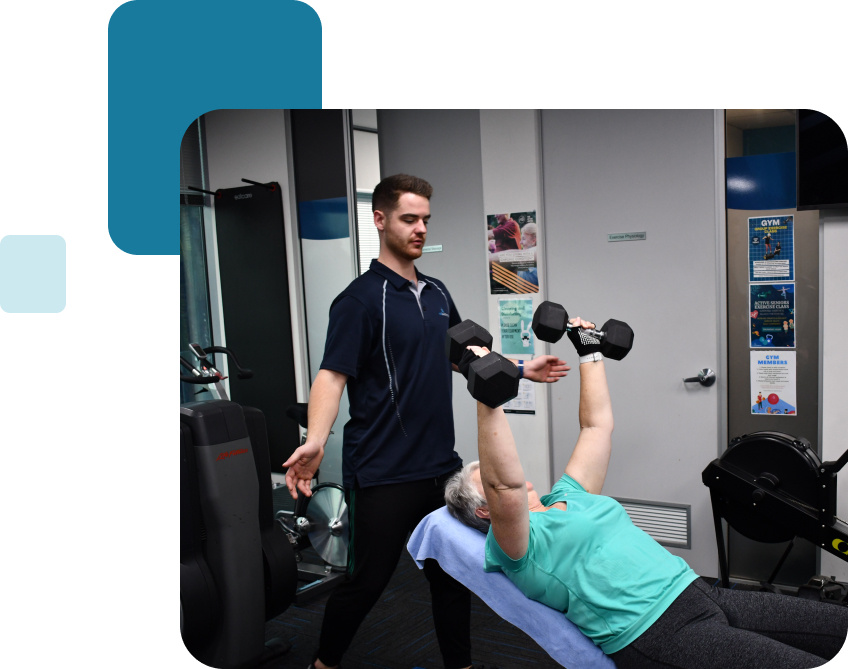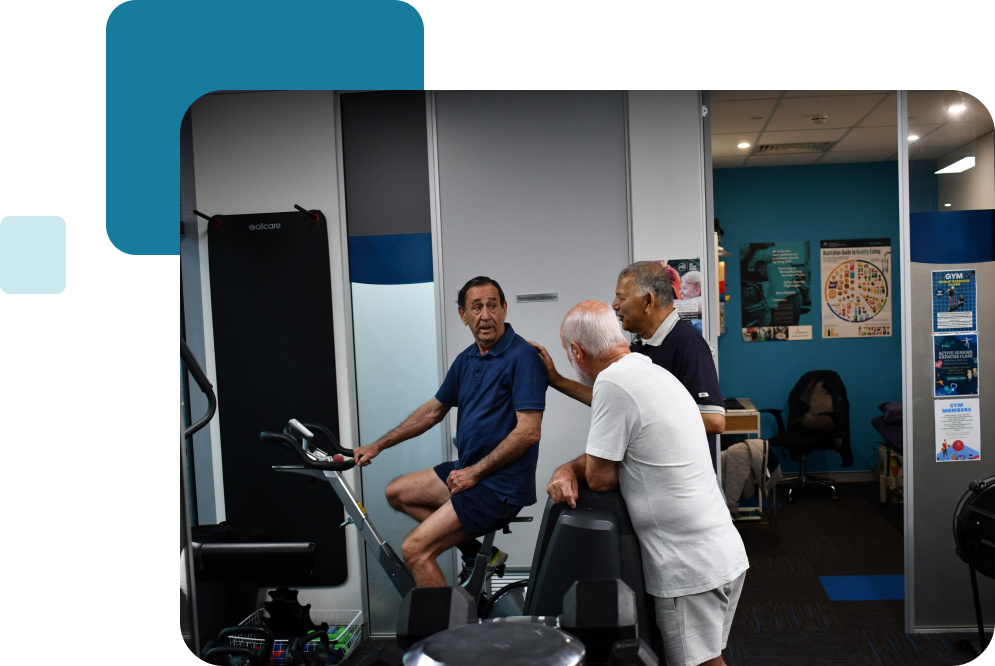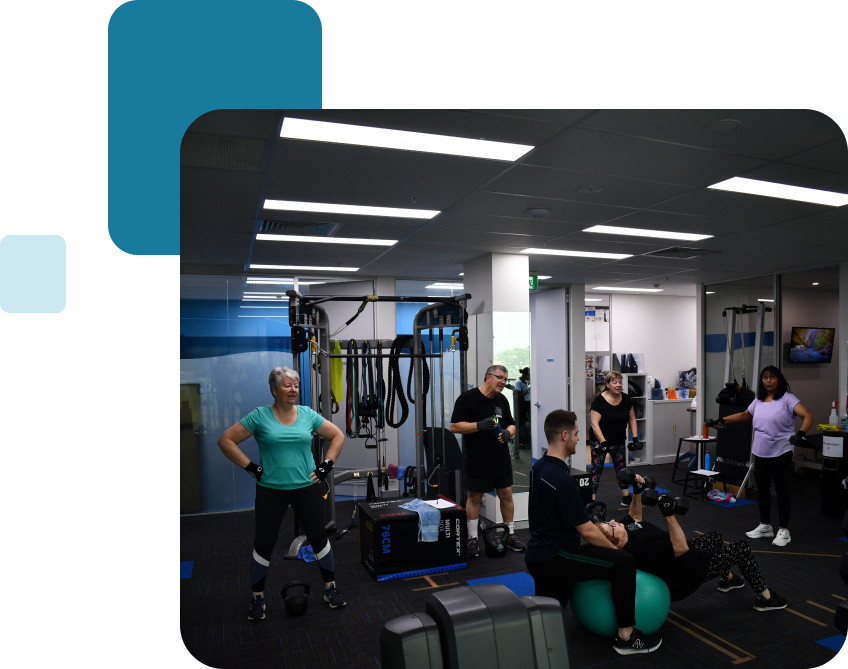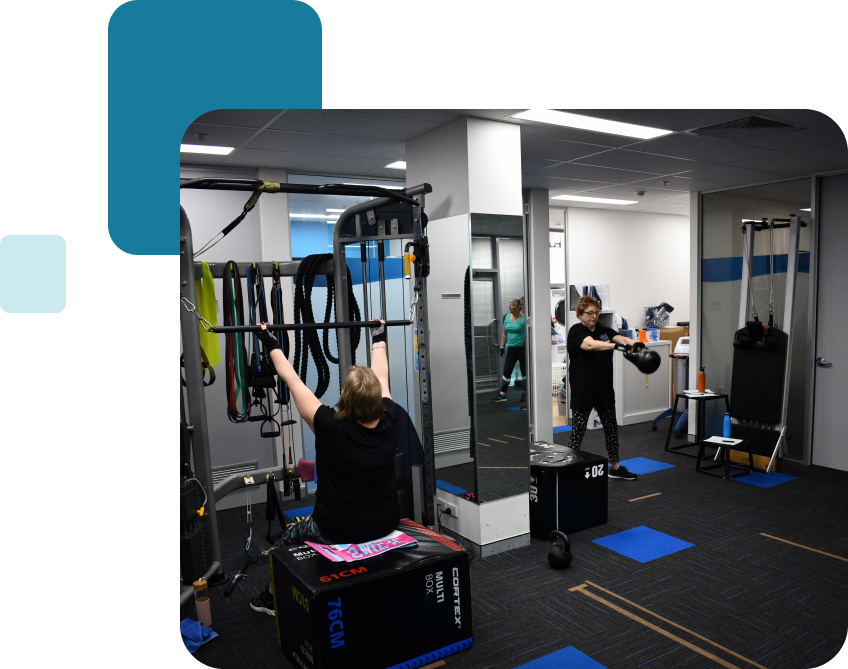- Chronic Disease Management
Exercise programs tailored to support people managing conditions such as diabetes and heart disease. - Rehabilitation
Individualised exercise plans to assist recovery after injury or surgery and support safe return to activity. - Weight Management
Programs combining exercise and lifestyle guidance to support healthy activity levels and wellbeing. - Strength and Conditioning
Personalised training to build strength, endurance, and overall fitness based on your goals and ability. - Cardiorespiratory Training
Exercise programs designed to support cardiovascular and respiratory health through guided activity. - Balance and Fall Prevention
Targeted exercises to help maintain balance, coordination, and confidence in daily movement. - Pain Management
Exercise-based strategies to assist in managing ongoing discomfort and supporting movement confidence.
Exercise physiology provides tailored, evidence-informed exercise plans based on your goals, health status, and abilities. Unlike general gym workouts, sessions with an Accredited Exercise Physiologist (AEP) focus on safe movement and long-term wellbeing.
For Busy Professionals
Structured exercise programs that fit your schedule and support strength, movement, and overall health.
For Older Adults
Gentle, functional exercises to maintain balance, mobility, and confidence in daily life.
For Pregnancy & Postpartum
Safe, guided exercise programs tailored to each stage of motherhood.
For Perth Mothers
Individualised sessions to support strength, posture, and energy while balancing family life.
For Athletes & Active Individuals
Sport-specific programs to assist with conditioning, recovery, and injury prevention.
For Retired Athletes
Exercise plans to help maintain strength, manage past injuries, and stay active after sport.
Have questions about exercise physiology? Contact our Perth team to discuss your goals and learn how we can support you through individualised care.

.jpg)












